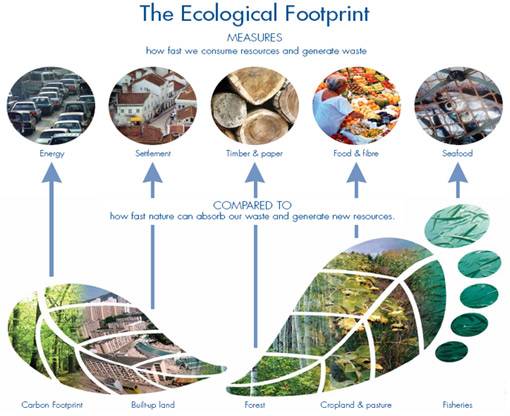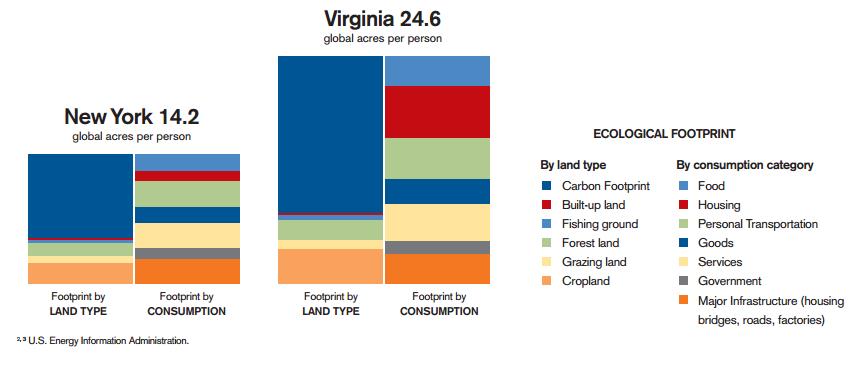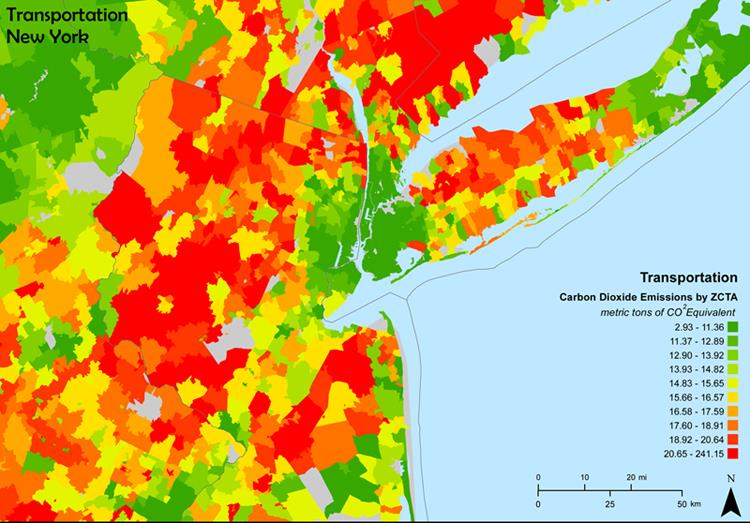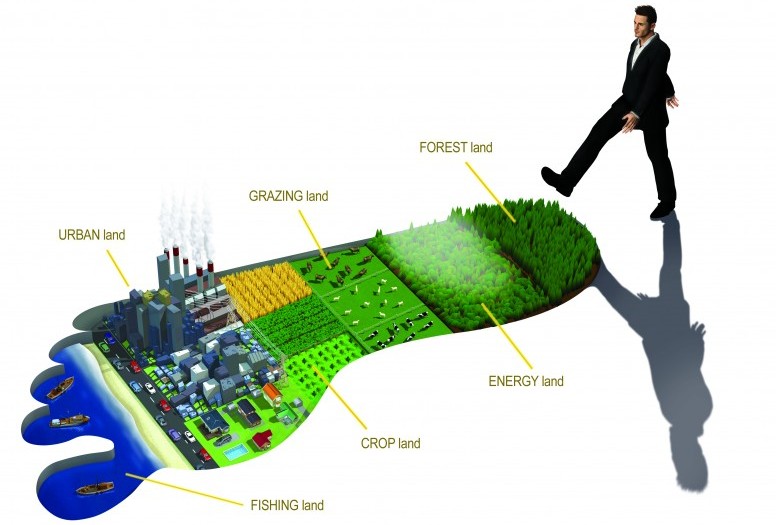New York has the nation’s smallest ecological footprint of any state, according to the Global Footprint Network‘s 2015 State of the States report released earlier this month. The report calculates the “Ecological Footprint” of an average person in each state–how much land an individual needs based on the amount of resources consumed and waste generated–and compares it to the biological capacity–the naturally occurring rate at which resources are regenerated and waste is absorbed–of their state.

New York’s Ecological Footprint came in at 14.2 global hectares (gha) per person, which is 42 percent smaller than the nation’s largest, Virginia (24.6 gha).

According to the report, this difference is largely driven by housing and transportation consumption rates. Compared to Virginia, New York has a substantially smaller Carbon Footprint, which is largely due to New York City’s public transit use and comparatively small home sizes.
New Jersey and Connecticut, however, did not fare as well, ranking at 30 and 45, respectively. Why the difference? Again, transportation and housing played a role.

Recent studies have already shown that cities tend to have lower greenhouse gas emissions (GHG) than their national averages–NYC dwellers, in particular, emit approximately 30 percent of what a typical American does. And this is not isolated to the five boroughs: transit helps to limit transportation-related emissions in the densely populated areas surrounding the city, too. Based on the data in State of the States, it’s even plausible that New Jersey’s large share of transit commuters reduced their state’s overall transportation Footprint.

Transportation is the second largest GHG-emitting sector in the United States. And although driving less, sharing rides and using more fuel-efficient vehicles certainly help reduce GHG emissions, in order to seriously reduce our impact on the planet, we have to consider where we live and how we move.


[…] on the Network today: Mobilizing the Region explains why New York has the smallest ecological footprint of all U.S. states (spoiler: it’s […]
Typo: It is “global hectare” – not “hectacre.”
https://en.wikipedia.org/wiki/Global_hectare
[…] is smart. It provides residents with economic, social and health benefits and results in smaller Ecological Footprints per capita compared to […]
[…] building emissions is low-hanging fruit for cities as densely developed and transit-dependent as New York. In 2013, commercial, industrial, institutional and residential buildings were responsible for 71 […]
I would like to express that I feel that the title for this article – “Why New York Has the Smallest Ecological Footprint of Any State” – is misleading. This is because although the per capita footprint of New York is smaller than any other state, this is certainly not the case with the aggregate ecological footprint attributed to it.
It would be in the best interest of your organization to change the title of this article to preserve credibility among your viewership, as readers will turn away if they feel your information is not credible.
Please take this into consideration, just trying to help
-Brady
I would like to express that I feel that the title for this article – “Why New York Has the Smallest Ecological Footprint of Any State” – is misleading. This is because although the per capita footprint of New York is smaller than any other state, this is certainly not the case with the aggregate ecological footprint attributed to it.
It would be in the best interest of your organization to change the title of this article to something more accurate – perhaps use “people in New York” instead of simply “New York” – in order to preserve credibility among your viewership, as readers will turn away if they feel your information is not credible.
Please take this into consideration, just trying to help
-Brady